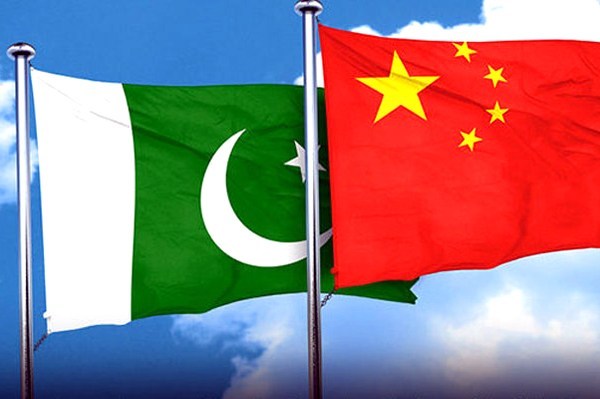BEIJING: Pakistan Ambassador to China, Moin ul Haque has invited Chinese businessmen to take advantage of the dividends of Special Economic Zones (SEZs) being set up under the China Pakistan Economic Corridor (CPEC).
Pakistan has identified nine SEZs and three of them are now in the advanced stage of preparation.
“We are going to share all the details very soon,” Haque said in an interview with China Economic Net (CEN), sponsored by the Economic Daily.
Pakistan has been committed to building industrial clusters in recent years to improve its ability to undertake the relocation of Chinese industries.
Chinese companies have also been paying continuous attention to the implementation of preferential policies in Pakistan’s SEZs.
In this regard, Haque said: “We have learned a lot from the Chinese experience of developing SEZs.”
Talking about China-Pakistan trade relations during the Covid-19 pandemic, he pointed out that “first of all, we are very happy that China has posted a very positive and more than 3% growth in the first quarter. Despite the pandemic, in the first quarter of this year, we saw our bilateral trade increase.” In the second quarter, there was a little dip because of the disruption of international travel.
The updated free trade agreement (FTA) has proved to be very critical in boosting the bilateral trade as over 300 items are now enjoying duty-free access to each other countries, including fisheries and pharmaceuticals.
“So there are many opportunities for the traders of the two countries to work in this area. We hope that in the months and years to come, our trade will increase from our previous figures,” Haque added.
Talking about his experience in the first month of his new role, Ambassador Haque first mentioned the second strategic dialogue between China and Pakistan which was held in August in south China’s Hainan province.
“While thanking China for its very valuable support to us during the pandemic, Foreign Minister Shah Mahmood Qureshi appreciated the announcement made by Chinese President Xi Jinping that whenever a vaccine is developed, it would be considered a public good. And it should be accessible to all countries, especially the developing countries,” he added.
Regarding the ML-1 railway a multiplier effect for the Phase II of CPEC, he said, the spectrum of Pakistan-China relationship is very broad and very deep, adding that “We cooperate in all areas from defence to security, from trade to investment, culture, education, science and technology, agriculture, and tourism. CPEC is a very important element of our relationship.”
“The industrial development cooperation of phase two is also in sync with the social-economic development agenda of our current government. So these will be very important areas that I’ll be working on during my term,” he said.
“ML-1 is the largest project on the CPEC. It is a very important project for both Pakistan and China. It will help to provide very economical and efficient inland travel in Pakistan. I think it will also be very important as a multiplier effect for the phase II of CPEC,” he added.
After fully expressing the necessity of agricultural modernization, Ambassador Haque introduced Pakistan’s industry and service industry. “Like China and many other countries, our work and life were also affected by the Covid-19. There were new ideas, new concepts and new products.”
Ambassador Haque said, “Another area is the automobile industry. China and Pakistan are working together to make brand new automobiles. Many Pakistani fashion products are very popular in the world. Our IT applications are very popular. A company like NetSol has a sizable business in China. Pakistan is the 3rd or 4th largest country in milk production. We are making new investments in value-added products such as cheese, butter, yoghurt and others. We hope that more Chinese investors can come to Pakistan in this field,” he asserted.
While answering various economic questions, he shared his views on the learning curve and economic diplomacy.
“The economic relationship between China and Pakistan has always been very important. Like diplomacy has changed from traditional diplomacy to economic diplomacy.”
China, he added, played a very important role, not only in producing news items and information but also in bringing the two countries together in the fields of culture and economy.
“Pakistan has beautiful landscapes and a very rich history. We’d like more and more Chinese tourists to go to Pakistan and see for themselves the beauty and diversity of Pakistan,” he added.



































